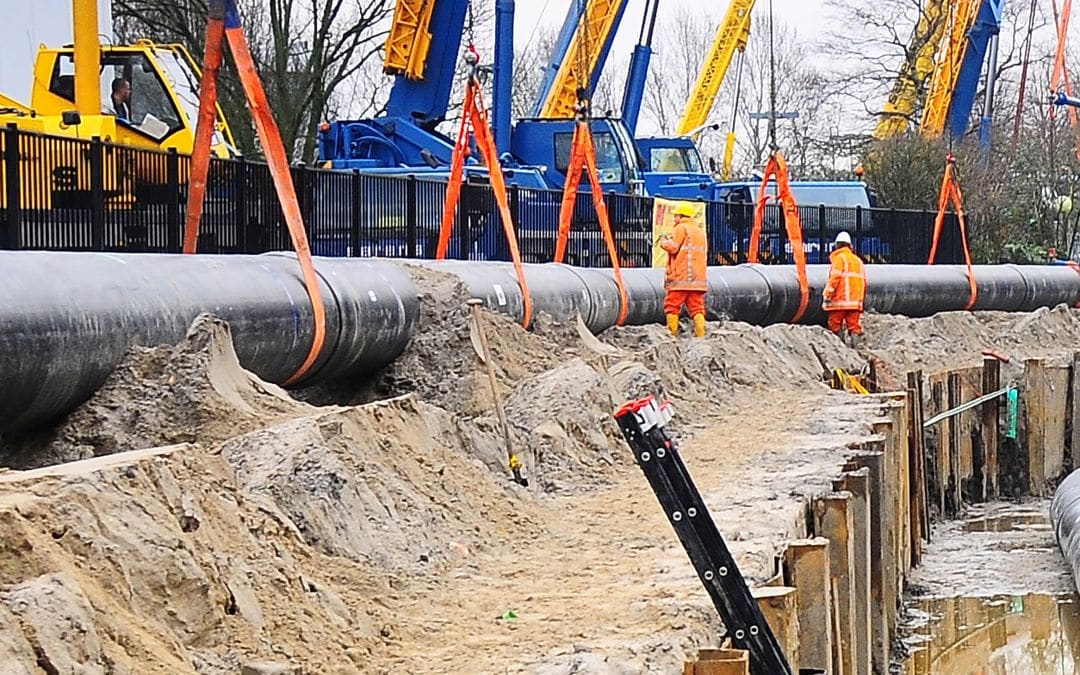Australian Gas Networks (AGN) has opened the country's biggest hydrogen site, the $14.5 million Hydrogen Park South Australia (HyP SA) production facility, and commenced blending renewable hydrogen into part of its natural gas distribution network in Adelaide, South Australia. “AGN will blend approximately 5% renewable hydrogen into its existing natural gas distribution network to deliver a blended gas to more than 700 homes in parts of the Adelaide suburb of Mitchell Park,” the company said in a statement. The HyP SA uses a PEM electrolyzer powered by solar and wind to produce 175 tonnes of hydrogen a year. AGN is part of the Australian Gas Infrastructure Group (AGIG), which is owned by units of Hong Kong-based CK Group. “The hydrogen produced at HyP SA shows how we can use the state’s abundant solar and wind resources to deliver carbon-free gas to homes and businesses,” said AGIG CEO Ben Wilson. AGN received a $4.9 million grant from the South Australian government’s Renewable Technology Fund.
Italian gas transmission system operator Snam, certification consultancy Rina, and steel group Giva tested a 30% hydrogen/natural gas blend in the forging processes used in industrial steelmaking. According to the companies, the trial in the Milan province was the world’s first test of this kind. “This trial is a preparatory step to the gradual introduction of zero-emission hydrogen, initially blended with natural gas and then in pure form, in certain steelmaking production processes,” Marco Alverà, CEO of Snam, commented in a press release. The blend did not require plant modifications and had no impact on the characteristics of the final heat-treated product.
A feasibility study commissioned by the Dutch Ministry of Infrastructure and Water Management, the Port of Rotterdam Authority, and Chemelot chemical industrial park suggested proceeding with the €1 billion project to lay four new pipelines between the Netherlands and Germany. “The construction of four new pipelines between Rotterdam, Chemelot and North Rhine-Westphalia for the transport of C4-LPG, propylene, hydrogen and CO2 will yield several benefits,” reads a note released on Wednesday. “The first port that is connected to inland industry by pipelines for hydrogen and CO2 will have an edge over its competitors in Northwest Europe,” commented Port of Rotterdam Authority CEO Allard Castelein.
VoltH2, a Europe-based developer of green hydrogen production infrastructure projects, signed a cooperation agreement for a green hydrogen production plant in the North Sea Port harbor city of Terneuzen, Netherlands. “The location will be a fully constructed hydrogen production plant with distribution capabilities. The plan is to build a 25 MW electrolysis unit that will produce 3,600 tons of green hydrogen annually. By integrating hydrogen storage, local filling stations can be supplied. The location is accessible by road, rail and waterways. The facility will be designed with expansion potential for increased hydrogen production,” reads a note released on Monday. The North Sea Port aims to distribute green hydrogen throughout Northern Europe.
Brazil’s Ministry of Mines and Energy (MME) and other potential Brazilian partners participated in an evaluation mission to develop a hydrogen-focused technical cooperation project, known as H2 Brazil, with German development agency Deutsche Gesellschaft für Internationale Zusammenarbeit (GIZ). “The project is aimed at fostering an economy of green hydrogen and its derivatives and will open opportunities for greater participation of Brazil in the global hydrogen market. At the request of the MME, GIZ will support Brazilian partners in the execution of the project. According to the German institution, H2 Brazil will be the largest cooperation project in Latin America's hydrogen sector and one of the largest in the world with the institution,” reads a note released by MME on Tuesday, adding that the resources for the project, which should last at least two years, would be available as of August 2021.
Spanish electric utility Iberdrola and Japan’s Mitsubishi Power signed a collaboration agreement to develop renewable solutions for industrial manufacturing processes such as green hydrogen projects, battery storage systems, and heat electrification solutions. Teams of experts from both companies will be created. The Bilbao-based company has launched a €150 billion investment plan over this decade (€75 billion by 2025) to triple renewable capacity and double network assets.
Estonian energy company Alexela and cleantech start-up PowerUP Energy Technologies launched a hydrogen cabinet at the Kakumäe harbor in Tallinn, Estonia. The fully automated cabinet, which uses a mobile payments system application, will serve sailing boats, yachts, and campervans. The two companies said the pilot hydrogen project should be replicated in other European countries.
This content is protected by copyright and may not be reused. If you want to cooperate with us and would like to reuse some of our content, please contact: editors@pv-magazine.com.



Strictly speaking, forging is not a steelmaking process. I imagine that what’s meant here is processing of steel slabs into products like construction beams and rails.